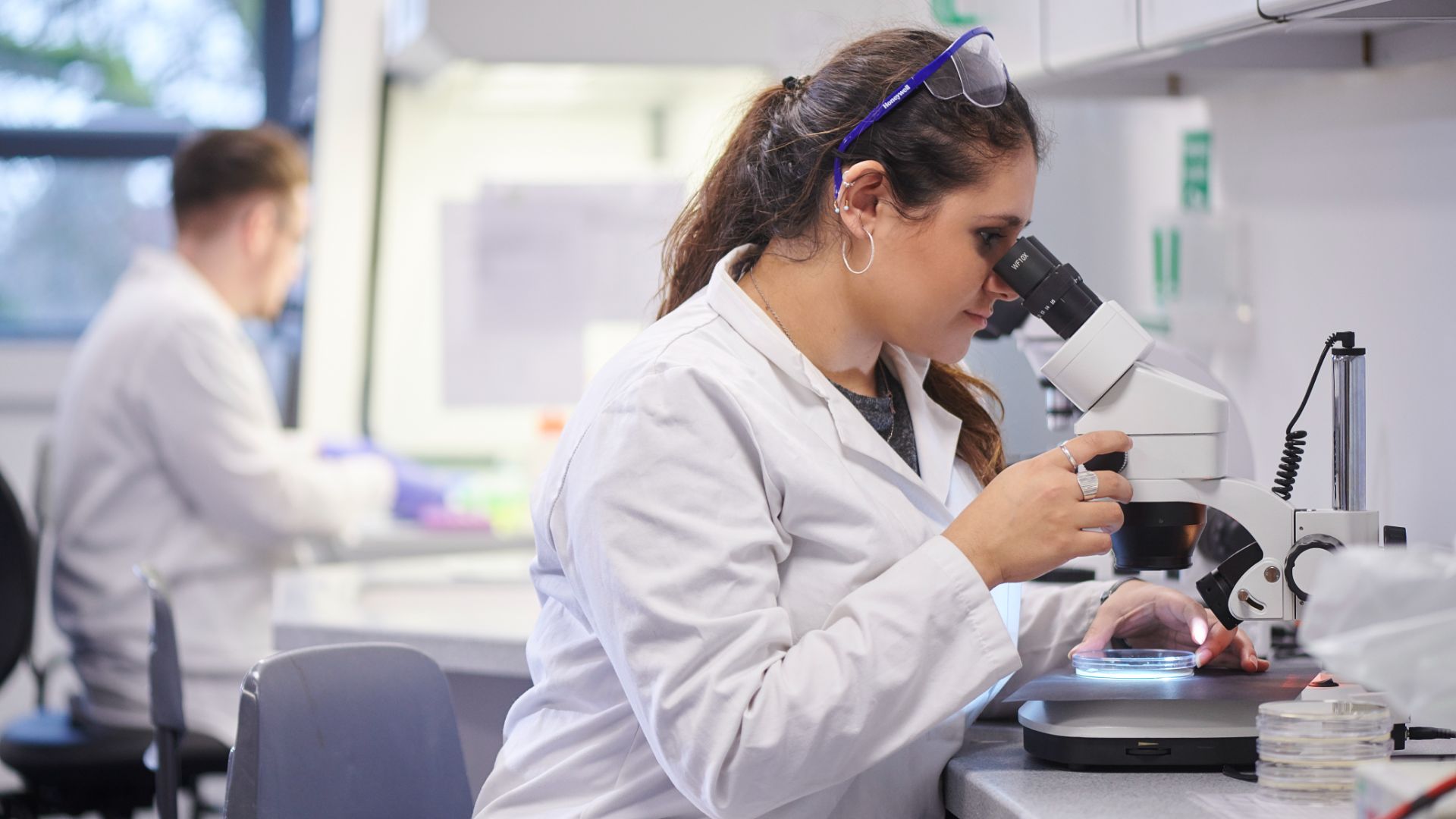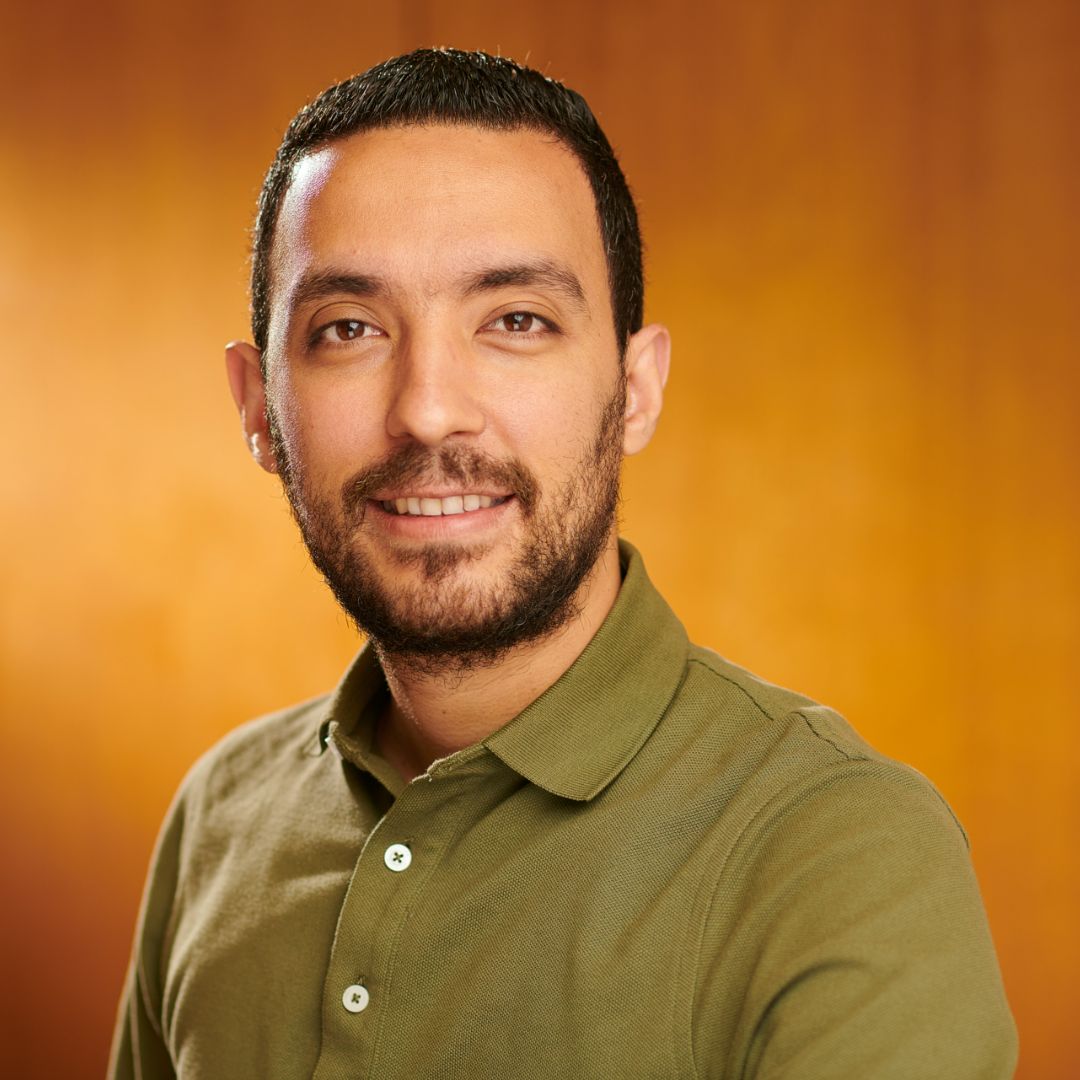
Microbiology answers big questions by giving us knowledge of very small things. It helps in addressing challenges that vary from urgent problems that require immediate solutions, such as new and emerging diseases, through to long-term issues, like antimicrobial drug resistance, food security and environmental sustainability. Through microbiology, we have a better chance of finding solutions and building a healthier, more sustainable, and prosperous future. These are the words of Senior Lecturer in Microbiology, Dr Mohamed El Mohtadi who spoke to us about the importance of microbiology and what you could explore under the microscope at Edge Hill.

What is your expertise in microbiology?
I have an undergraduate degree in pharmacy and a PhD in microbiology. My research mainly focuses on interrogating host-pathogen dynamics and developing novel strategies to promote stimulation of the innate host response to bacterial infection. I currently work on investigating the effect of different molecules including sex-steroid hormones on the ability of innate immune cells such as macrophages and neutrophils to eradicate bacteria through a process known as phagocytosis.
What is the importance of studying microbiology and host-pathogen interactions?
One of the major causes of disease around the world is bacteria. Studying the interactions between bacteria and host cells is key in understanding human diseases, caused by bacteria, something that is vitally important to all people around the world. It allows people to understand the diseases that are caused by those microbes. This leads to dealing with microbial diseases more effectively and potentially developing new drugs and treatment for microbial infections.
Microbes are everywhere and affect almost all aspects of our lives. We cannot see them, but our world would not function without them. Bacteria, viruses, fungi, protists, archaea, algae and other microscopic life forms are on us and in us, in the air, soil and water, and in our food. They are in and on the surfaces of everything in our homes, workplaces and other environments. Most do not harm us, and many are essential for the good health of humans, animals, and the planet. Microbes also help keep the planet healthy by recycling waste and supplying nutrients.
Can students explore these different areas of microbiology on a degree at Edge Hill?
Yes, we deliver six undergraduate degrees in the Biology Department with microbiology being taught, to a different extent, in all of them. For instance, all our undergraduate degrees include the Level 4 compulsory module Introduction to Cell Biology which covers the basics of microbiology and introduces students to the world of microbes and their interactions with humans, plants and the environment. Microbiology is also covered in Year 2 when students learn several microbiology-related laboratory techniques in the Laboratory Masterclass module. Degrees such us BSc (Hons) Biomedical Science, BSc (Hons) Genetics and BSc (Hons) Biotechnology, include more optional modules such as Immunology and Infectious Diseases and Medical Microbiology which cover specialised content and laboratory skills in microbiology and host-pathogen interface. The Medical Microbiology module provides students with the unique opportunity to work with human and bacterial cells in a series of practical classes. Several microbiology-related dissertation research projects are also offered to our final-year undergraduate students where they gain substantial theoretical knowledge and practical expertise in microbiology.
What are the laboratory facilities like at Edge Hill?
We have some excellent specialist teaching and research facilities in the Biosciences and Tech Hub laboratories. These include equipment such as Class 1 and 2 microbial and human cell culture facilities, advanced gene sequencing machines, Histology and molecular biology rooms, FACs and PCR machines and a JEOL imaging centre the home of high-resolution scanning and transmission electron microscopes. We also have different types of microscopes such as light and fluorescent microscopes which are great pieces of equipment frequently used by our students during their dissertation projects.
What would you say is the most fascinating thing that you’ve discovered in microbiology?
I have been lucky to be one of the first people to find out that one of the sex steroid hormones, oestrogen, naturally boosts the phagocytic ability of innate immune cells, particularly macrophages, to kill bacteria using in vitro and ex vivo models of bacterial infection. Oestrogen has been shown to stimulate the phagocytosis of both Gram-positive and Gram-negative bacteria by human macrophages which is fascinating. These finding suggests that local and/or systemic oestrogen replacement therapy might resolve or reduce the likelihood of Gram-positive and Gram-negative infections in humans.
How will students benefit from studying a degree in Biology and Biosciences at Edge Hill University?
We give our students the skills and opportunities to advance human knowledge and understanding in today’s world in order to make a difference to tomorrow’s world. Experienced lecturers and researchers teach courses in small, friendly groups in a supportive environment. They use excellent teaching and research facilities located in a modern, purpose-built, and well-equipped buildings.
We offer a lot of laboratory work to our students as practical activities are key components of all our degrees and modules. Being a small department is also one of our key assets – our students normally appreciate being part of a close-knit community where everyone knows one another. We provide high-quality support and guidance, developing an understanding of how each student is progressing with their studies and enjoying their academic experience.
July 4, 2023


